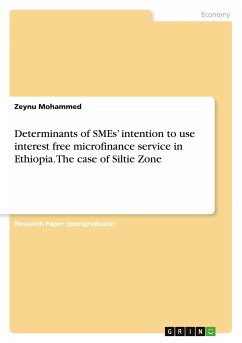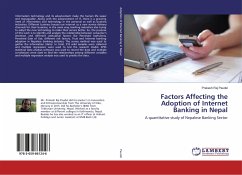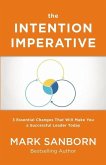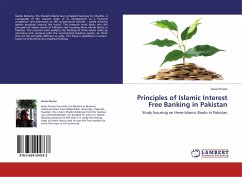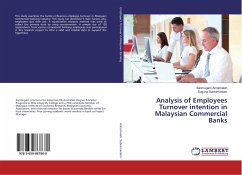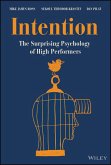Research Paper (postgraduate) from the year 2022 in the subject Business economics - Banking, Stock Exchanges, Insurance, Accounting, grade: 1.00, , course: Accounting and Finance, language: English, abstract: The purpose of this research is to investigate determinants of SMEs¿ intention to use Interest Free (Islamic) Micro Finance services and products by using TPB developed by Ajzen. The study also added two new variables (religiousity and awareness) in the Ajzens Model and investigates their effect on SMEs¿ intention to use Interest Free (Islamic) Micro Finance services and products. For this purpose, the researcher able to collect 282 questionnaires from the total 291 sample size and the collected questionnaires inserted into SPSS. To achieve the objective of the research, the Structural Equation Model (SEM) was applying factor analysis called exploratory factor analysis by reducing not producing useful factors. Before going into hypothesis testing, internal consistency measure such as Cronbach alpha reliability, composite reliability, Discrimant validity, convergence validity, collinearly diagnostic, model fit and indices has adequately dealt with. Apparently, all values for composite reliability and AVE calculated in this study meet the recommended threshold values The empirical analysis supports TPB and prior research in the field of finance and other domains by confirming that attitudes, subjective norms and perceived behavioural control are significant predictors of SMEs¿ intention to use IFMF services and products. Although religiosity showed a non-significant negative relation and is not a predicting factor of SME owner-managers¿ intention to use IFMF services and products, awareness did show a significant positive relation and was an important factor in predicting IFMF services and products usage intention.
Bitte wählen Sie Ihr Anliegen aus.
Rechnungen
Retourenschein anfordern
Bestellstatus
Storno

